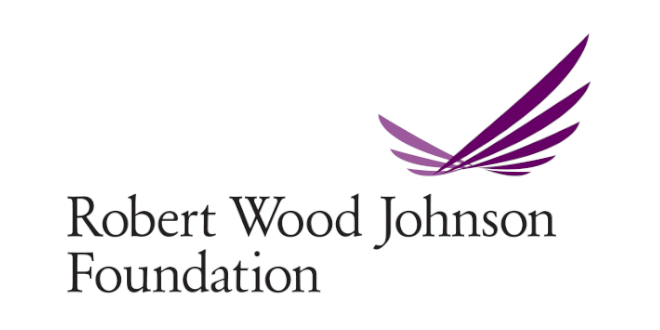Princeton, N.J., November 21, 2019—The obesity rate among children ages 2 to 4 participating in the Special Supplemental Nutrition Program for Women, Infants, and Children (WIC) in Indiana declined from 15.1% in 2010 to 13% in 2016, according to the newest data published today by the Centers for Disease Control and Prevention.
In Indiana, 112,201 infants, and children participate in WIC, and the state has the 33rd highest obesity rate in the country among children ages 2 to 4 participating in WIC. Nationally, 13.9 percent of children in this group have obesity, but that rate has declined both nationally and in 41 states and territories.
The Robert Wood Johnson Foundation (RWJF) today released a Special Report: Obesity Rates Decline Among Young WIC Participants, that includes the newest data from CDC, makes policy recommendations regarding WIC, and shares stories of how places around the country are using WIC to help children grow up at a healthy weight. The full report is available at https://stateofchildhoodobesity.org/obesity-rates-decline-among-wic-participants/
“These widespread declines in obesity rates are encouraging,” said Jamie Bussel, M.P.H., a senior program officer at RWJF. “They show real progress in our efforts to help all children grow up at a healthy weight. Changes made to WIC in the last decade may be having a real impact—we should make sure it’s reaching everyone who’s eligible.”
WIC is a federally funded program for low-income pregnant women, new mothers, infants and children under age 5. It provides healthy foods and nutrition education; promotes breastfeeding and supports nursing mothers; and offers healthcare and social-service referrals. WIC served approximately 6.3 million people in 2018, including nearly half of all infants born in the United States.
The Foundation included with the report several policy recommendations aimed at extending the positive impact of WIC, including:
- Congress should increase WIC funding to extend eligibility to postpartum mothers through the first two years after the birth of a baby, and to children through the age of 6 to align with participation in school meal programs.
- Congress should fund the WIC Breastfeeding Peer Counseling Program at its full authorized amount of $90 million to ensure mothers have access to critical supports.
- Congress should continue to support and fund efforts to streamline and modernize WIC services through technology, including achieving the congressional mandate for all states to achieve WIC Electronic Benefit Transfer (EBT) by 2020.
- USDA should maintain the scientific integrity of the WIC food package process as USDA undertakes the Congressionally mandated 10-year cycle revision.
- The Centers for Medicare and Medicaid Services should continue to support and reimburse WIC for its role in lead screening.
There have been several relevant policy developments in the last few years. The package of foods and beverages covered by WIC was updated in 2009 to include more fruits, vegetables, whole grains, and lower-fat milk. Subsequent studies show that, following those changes, stores started to stock healthier options and WIC participants had healthier diets. In addition, states have increasingly adopted improved childcare nutrition standards.
Recent recommendations by the nation’s leading health organizations on healthy drinks can also help all children, including those participating in WIC, grow up at a healthy weight.
“Research shows that early childhood is when nutrition habits are developed. These habits can last all through adulthood and have a big impact on health,” said Megan Lott, M.P.H, RD, Deputy Director of Healthy Eating Research, which convened the expert panel that developed the recommendations. “For the first time, we have a set of guidelines that parents, caregivers, healthcare professionals and policymakers can use as a blueprint to make informed decisions about which beverages can help children achieve optimal health.”
The new guidelines, released in October, recommend breast milk, infant formula, water, and plain milk, and they caution against beverages that are sources of added sugars in young children’s diets, including flavored milks (e.g., chocolate, strawberry) and sugar- and low-calorie sweetened beverages. The expert panel’s recommendations are largely in alignment with the beverages allowable in the WIC food package.
The new beverage recommendations were developed by the Academy of Nutrition and Dietetics, American Academy of Pediatric Dentistry, American Academy of Pediatrics, and the American Heart Association under the leadership of Healthy Eating Research, a leading nutrition research organization, and with funding from RWJF.
Obesity Rate Among WIC Participants Ages 2-4 (2016)
| State | Youth Obesity Rate |
| Alaska * | 19.8 |
| South Dakota | 17.1 |
| West Virginia † | 16.6 |
| Massachusetts * | 16.4 |
| Alabama † | 16.3 |
| Delaware | 16.2 |
| Kentucky* | 15.9 |
| New Hampshire | 15.8 |
| Maryland* | 15.6 |
| California* | 15.5 |
| Rhode Island* | 15.4 |
| Virginia* | 15.3 |
| Iowa | 15.2 |
| Nebraska | 15.2 |
| New Jersey* | 15 |
| Illinois* | 14.8 |
| Oregon* | 14.7 |
| Tennessee* | 14.6 |
| Texas* | 14.6 |
| Vermont | 14.5 |
| Connecticut* | 14.4 |
| Mississippi* | 14.4 |
| North Dakota | 14.3 |
| Wisconsin* | 14.3 |
| North Carolina † | 14.2 |
| Maine* | 13.9 |
| New York* | 13.7 |
| Arkansas* | 13.3 |
| Michigan* | 13.3 |
| Washington* | 13.3 |
| Louisiana* | 13.2 |
| Oklahoma* | 13.1 |
| Indiana* | 13 |
| Florida* | 12.7 |
| Georgia* | 12.5 |
| Kansas* | 12.5 |
| Ohio | 12.4 |
| Missouri* | 12.3 |
| Minnesota* | 12.2 |
| Pennsylvania* | 12.2 |
| Arizona* | 12.1 |
| Montana | 12.1 |
| New Mexico* | 12.1 |
| Nevada* | 11.6 |
| Washington, D.C.* | 11.4 |
| South Carolina* | 11.4 |
| Idaho* | 11.3 |
| Hawaii | 9.6 |
| Wyoming* | 9.1 |
| Colorado* | 8.1 |
| Utah* | 7.9 |
* The obesity rate among children ages 2 to 4 participating in WIC declined statistically significantly between 2010 and 2016. In addition to the states, declines were also significant in the Northern Mariana Islands, Guam, and Puerto Rico.
† The obesity rate increased statistically significantly between 2010 and 2016.
Unless otherwise indicated, the obesity rate was stable between 2010 and 2016. It was also stable in American Samoa and the US Virgin Islands.
 WYRZ.org 98.9 WYRZ – The Voice of Hendricks County
WYRZ.org 98.9 WYRZ – The Voice of Hendricks County





